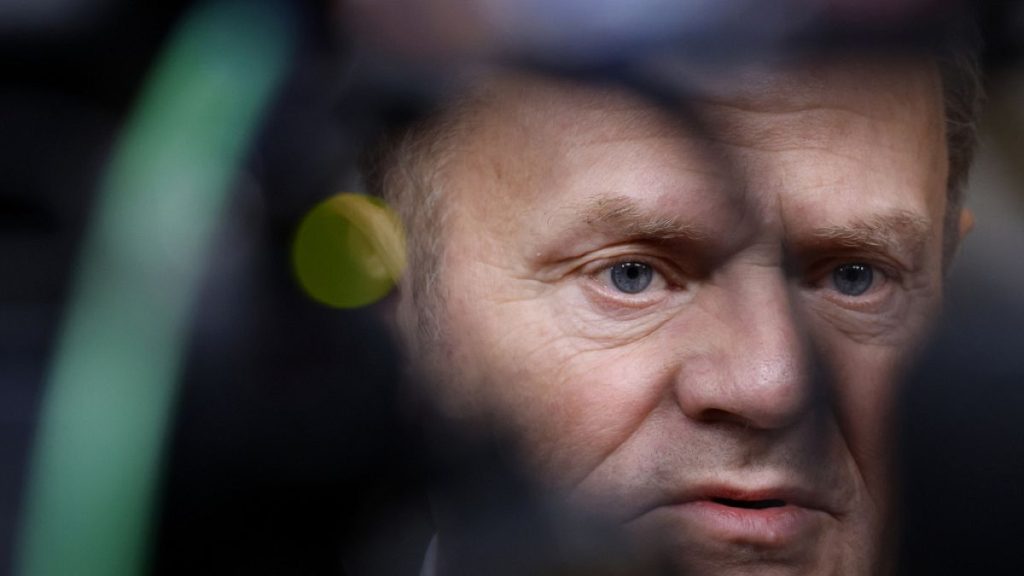The geopolitical landscape has been significantly impacted by the ongoing conflict between Russia and Ukraine, with accusations of sabotage and hybrid warfare adding further complexity to the situation. Polish Prime Minister Donald Tusk has directly accused Russia of orchestrating a campaign of global sabotage, including alleged plots to target airlines with “acts of air terror.” This accusation, made alongside Ukrainian President Volodymyr Zelenskyy, escalates the already tense relationship between Poland and Russia. While the Kremlin has consistently denied these allegations, Tusk’s statement reflects a growing concern within some Western nations regarding Russia’s alleged covert activities. This concern stems from incidents like the discovery of incendiary devices in cargo packages destined for North America, which Western security officials suspect were orchestrated by Russian intelligence. These incidents, coupled with the ongoing conflict in Ukraine, have fueled anxieties about Russia’s intentions and its potential willingness to engage in disruptive actions beyond the immediate theater of war.
Poland’s accusations against Russia are not isolated incidents. The Polish government, a staunch supporter of Ukraine, has previously accused Russia of waging hybrid warfare against Western countries in retaliation for their support of Ukraine following the Russian invasion. This “hybrid warfare” encompasses a range of tactics, including disinformation campaigns, cyberattacks, and the alleged orchestration of migrant crises. Poland specifically points to the migrant crisis along the EU’s eastern border with Belarus, alleging that Russia and its ally, Belarus, are deliberately fueling the crisis to destabilize the EU and sow discord among member states. This strategy, according to the Polish government, aims to weaken Western resolve and undermine their support for Ukraine by creating internal chaos and diverting resources away from the Ukrainian conflict.
The alleged incidents of sabotage and the broader accusations of hybrid warfare highlight the escalating tensions between Russia and some Western nations, particularly those bordering Russia or actively supporting Ukraine. These accusations represent a significant shift in the geopolitical landscape, moving beyond traditional military confrontations and into the realm of covert operations and unconventional warfare. The use of such tactics, if proven, raises serious concerns about the potential for escalation and the blurring lines between traditional conflict and clandestine activities. The situation also underscores the challenges posed by hybrid warfare, which often involves deniable actions and makes attribution difficult, creating ambiguity and hindering effective responses.
The ongoing war in Ukraine has served as a catalyst for these escalating tensions and accusations. The conflict has exposed deep-seated mistrust between Russia and the West, exacerbating existing geopolitical fault lines. The accusations of sabotage and hybrid warfare are indicative of a broader pattern of escalating confrontation and a growing perception of Russia as a destabilizing force in the region. This perception is further reinforced by Russia’s historical actions and its assertive foreign policy, which has led to increased vigilance and suspicion among Western nations. The potential consequences of these actions, if left unchecked, could be severe, potentially leading to further escalation of tensions and even direct confrontation.
The discovery of incendiary devices in cargo packages adds another layer of complexity to the situation. While the specific perpetrators and their motivations remain unclear, Western security officials suspect the involvement of Russian intelligence. These incidents raise concerns about the potential use of international logistics networks for acts of sabotage and the vulnerability of global supply chains to such attacks. The incidents also highlight the potential for unintended escalation, as even seemingly isolated acts of sabotage can have far-reaching consequences and trigger retaliatory actions. The use of such tactics could further destabilize international relations and erode trust in global systems.
The response of Western governments to these perceived threats has been varied, ranging from diplomatic protests and sanctions to the expulsion of diplomats and increased security measures. Poland’s decision to close one of the three Russian consulates in the country exemplifies this trend, reflecting a growing willingness to take concrete actions against Russia in response to its alleged activities. These responses, however, must be carefully calibrated to avoid further escalation and unintended consequences. The need for international cooperation and dialogue is paramount in addressing these complex challenges and mitigating the risks of further escalation. The situation underscores the importance of maintaining open communication channels and working towards de-escalation through diplomatic efforts.














